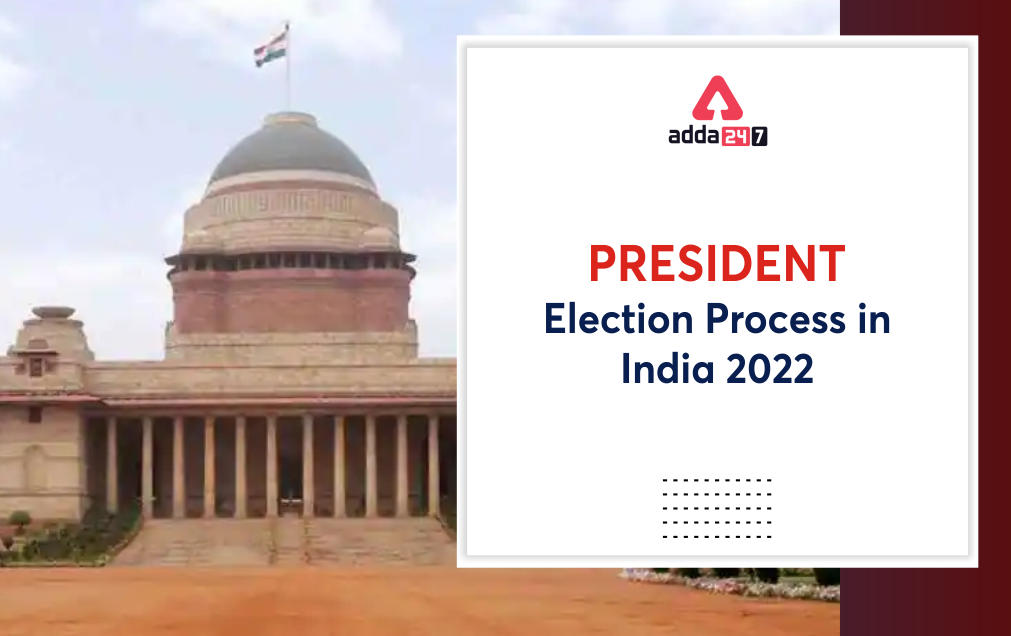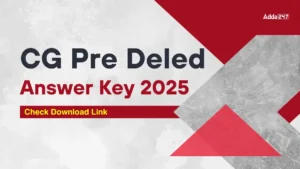Table of Contents
President Election Process in India: The Election of the President of India has been announced by the Election Commission of India on 9th June 2022. The Presidential Candidates for the year 2022 are Draupadi Murmu and Yashwant Sinha. The voting for the Presidential Election will be conducted on 18th July 2022 and the Oath Ceremony will be conducted on 26th July 2022. The Present President of India, Ram Nath Kovind will demit his office on 25th July 2022.
Who is the President?
The President of India is the head of the country. The President of India is considered to be the First Citizen of India. Referring to the Article 60 of the Constitution, the President’s duty is to uphold, defend, and preserve the Constitution of India and the Law. Another primary duty of the President of India is to appoint the Chief Justice of India and other Supreme Court Judges on the advice of the Chief Justice of India. His/Her decision is made and acted upon on the advice of the Council of Ministers.
Eligibility for Appointment of President
The candidates who are to contest the Election of President must be citizens of India and should be at least 35 years old according to Article 58 of the Constitution of India. The Presidential Candidates will be disqualified if he/ she holds an office of profit under the Government of India or the State Government.
Process of the Election of President of India
The Representatives of Parliament and State Legislative combinedly participate in the process of President Election in India. In the following section, the Process of the Election of the President of India is mentioned in detail.
Nomination
The Presidential candidates need to file their nominations. The candidates are required to submit Form 2 along with Rs. 15000. They also need to submit a signed list of 50 proposers and 50 seconders. The proposer and seconders can be any of the 4,896 electors (representatives of the Parliament or State Legislative) eligible to vote in the Presidential Election.
Election
The Election Commission of India is authorized to conduct the Presidential Election according to Article 324 of the Constitution of India. The Members of the Electoral College will participate in the process of The Election of the President. The Electoral College includes the elected members of the Both Lower and Upper Houses of the Parliament as well as the elected members of Legislative Assemblies of the States including the National Capital Territory of Delhi and Pudducherry.
There are 233 members in the Upper House (Rajya Sabha) and 543 members in the Lower House (Lok Sabha). 4120 members are elected to the Legislative Assemblies. Thus the total number of Electoral College members is 4896. The nominated members of two Houses of Parliament and state legislation will not be able to part in the voting process of the Presidential Election as they are nominated by the President.
Voting
The Presidential Election follows the system of proportional representation. In this process, the value of each vote is pre-determined in proportion to the population of the representative state based on the census of 1971.
The total value of the electoral college is 1098003 which included 4896 members. The Presidential candidate has to win more than 50% of the total to become the President of India.
Oath Taking
The Elected President take the Oath of their office after the outgoing President demits the office. The Chief Justice of India will administer the Oath of the President.
President Election Process: latest update 2022
In the ongoing 15th Presidential Election, Draupadi Murmu and Yashwant Sinha have been announced as the nominees. Draupadi Murmu has been announced the Presidential candidate by the BJP -Led NDA and Yashwant Sinha have been backed by the opposition. The last day to file the nomination is 29th June 2022. On 30th June 2022, Election Commission will check the papers and documents submitted by the nominees and review their candidature for the Presidential Election. The date for the Process of the Presential Election has been declared for 18th July 2022. The 5-year tenure of the Present President Ram Nath Kovind will end on 25th July.
Tenure of the President of India
The President of India is elected for a 5-year tenure. They are responsible to head the country for 5 years and then they have to step down from their post and responsibilities. While they are President of India, they reside in Rashtrapati Bhawan. Once their tenure is complete they have to move out of the Rashtrapati Bhawan.
List of All Presidents of India
Here is the list of all the Presidents of India since independence. Check out the name of the Presidents and their tenure for further information. Dr. Rajendra Prasad was the first President of India.
| Presidents | Tenure |
| Dr. Rajendra Prasad | 26th Jan 1950- 13th May 1962 |
| Dr. Sarvepalli Radhakrishnan | 13th May 1962- 13th May 1967 |
| Dr. Zakir Hussain | 13th May 1967- 3rd May 1969 |
| V.V.Giri | 24th Aug 1969- 24th Aug 1974 |
| Dr. Fakhruddin Ali Ahmad | 24th Aug 1974- 11th Feb 1977 |
| Neelam Sanjiva Reddy | 25th July 1977- 25th July 1982 |
| Giani zail Singh | 25th July 1982- 25 July 1987 |
| R.Venkataraman | 25th July 1987- 25th July 1992 |
| Dr. Shankar Dayal Sharma | 25th July 1992- 25th July 1997 |
| K.R. Narayanan | 25th July 1997- 25th July 2002 |
| Dr. A P.J. Abdul Kalam | 25th July 2002- 25th July 2007 |
| Pratibha Devisingh Patil | 25th July 2007- 25th July 2012 |
| Pranab Mukherjee | 25th July 2012- 25th July 2017 |
| Ramnath Kovind | 25th July 2017- 25th July 2022 |
President Election Process in India: FAQs
Q: Who was the first President of India?
A: Dr. Rajendra Prasad was the first President of India.
Q: Which President of India is also known as the Missile Man of India?
A: Dr. A.P.J Abdul Kalam was also known as the Missile Man of India for his immense contribution to the Missile Technology and Nuclear Weapon Program in India.
Q: Who conducts the Presidential Election in India?
A: The Election Commission of India conducts the Presidential Election of India.



 MP TET Varg 3 Notification 2025 Out, Che...
MP TET Varg 3 Notification 2025 Out, Che...
 CG Vyapam Pre Deled Final Answer Key 202...
CG Vyapam Pre Deled Final Answer Key 202...
 CG Vyapam Pre DElEd Result 2025 Out, Dir...
CG Vyapam Pre DElEd Result 2025 Out, Dir...




